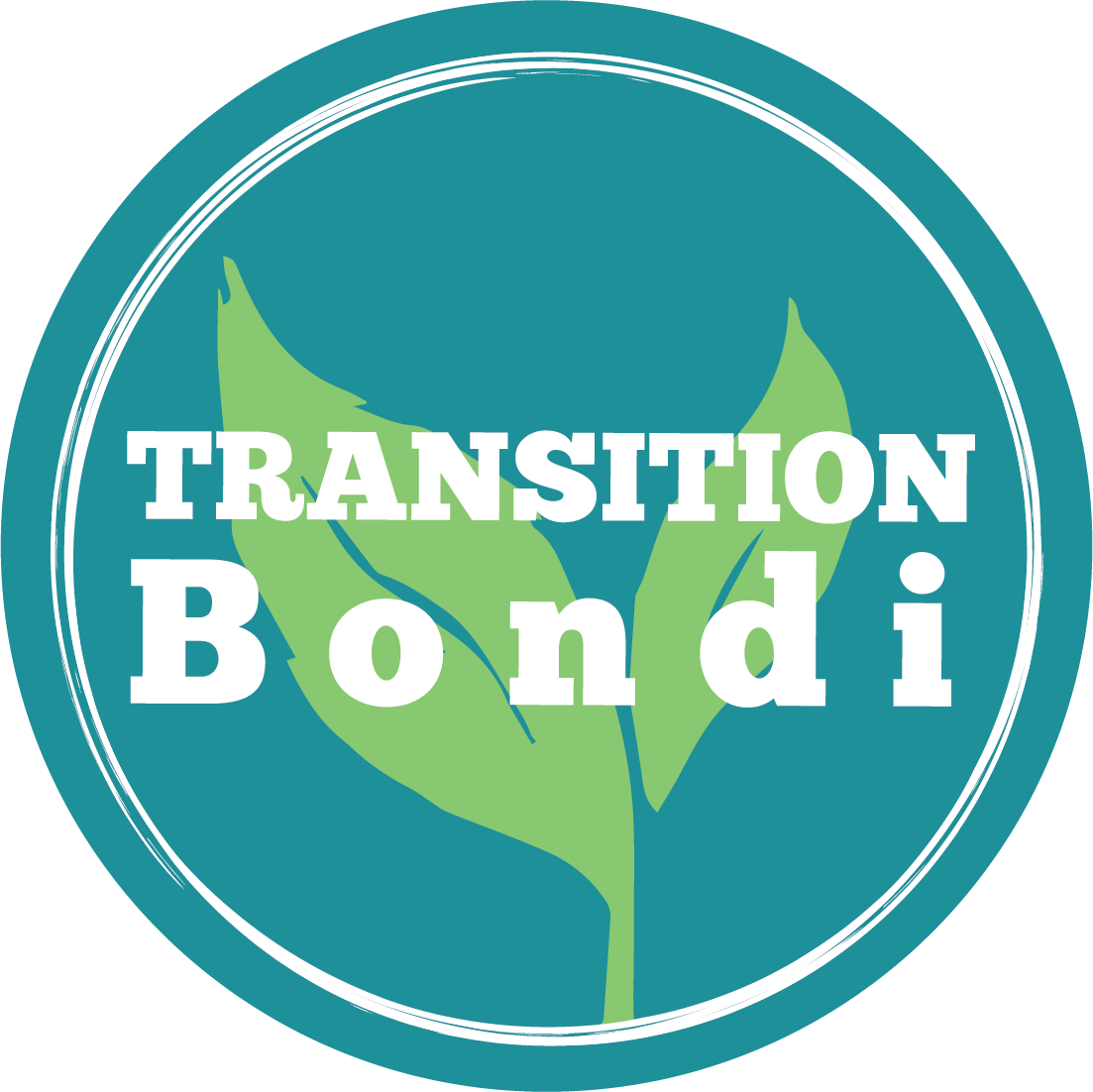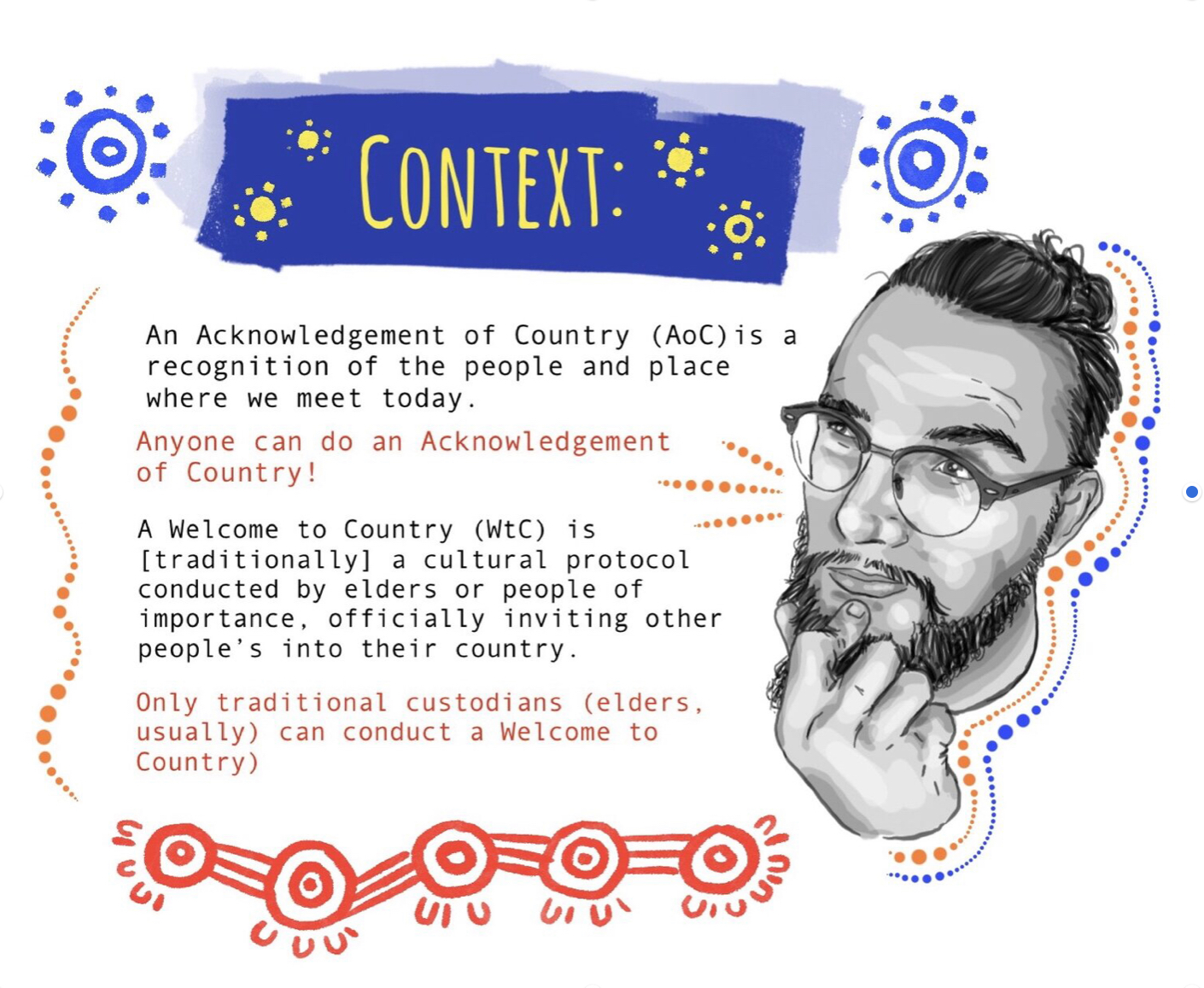Acknowledgement of Country (AoC)
Notes from a December 2021 workshop, with thanks to Rhys Paddick and Emma Gibbens for a lively and interesting webinar.
Difference
An Acknowledgement of Country: is a recognition of the people and place where we meet today. Anyone can do an AoC.
A Welcome to Country: is (traditionally) a cultural protocol conducted by elders or people of importance, officially inviting other peoples into their country.
When is AoC used?
At a meeting with a ‘subject of importance’
Why
- To bring a sense of presence, steers people in a connected, deep way.
- To embrace traditional and modern culture.
- For grounding, creating a sacred moment, poised between past and future
- This introduction allows the work to go better.
How
- Follow the respectful structure, add something, with good intention to bring context. Create a conscious connection.
- Slow down, breathe together in quietness.
What
You can mix the generic text of the AoC with your additions; it’s good to say a little about yourself. Be aware of who might be in the audience and direct your pronouns appropriately – ‘you’ ‘we’, or ‘they’.
History and Introduction
Origins: In the traditional Country context, tribes were navigating between Songlines (where groups of people would move, during the year). Different types of neighbours would be known. There would have been different reasons for travelling (eg trade, marriage, curiosity). There were protocols about how to conduct yourself when not in your own land. Recognising people and place. These meetings could involve dance, music, talk, ceremony.
The National Anthem is used formally in western settings in a similar way.
Ernie Dingo was in a dance group in the 1970s which used an acknowledgement, and the idea caught on as a practice.
Think about how non-indigenous people welcome others to their homes today in Australia. We open the door, welcome the guest who shows interest and pleasure in being there. It’s not formal, and doesn’t need to be; same with the AoC.
Q&A and Comments
Non-indigenous Australians worry about causing offence, or not knowing what to say; there’s a fear of rules, and of things seeming tokenistic. Don’t let the idea of offence hinder you from your intention. There’s no right and wrong; you can’t please everyone; your way is good.
Wording – ‘Traditional Owner’ or ‘Custodian’?
Ownership is not an Aboriginal concept about land or tools; Custodianship has the association of duty, passing responsibility on; so that may be preferable. There are different approaches.
It’s good to be flexible, but not to ‘go rogue’
Note the tone: ‘Before we begin’ can have a ‘house-keeping’ tone about it, lacking real presence.
Is it alright to use ‘language’?
Yes, it’s everyone’s … in a state of revival and everyone can strengthen it. You might like to use the indigenous name for the suburb, or words about the location, venue or purpose.
There’s a spectrum of opinions between appreciation and appropriation. Some people had their language taken away so may be confronted by non-indigenous people using it.
If doing so, frame it with your good intentions.
Elders…why honour them?
Everyone can relate to them as we all have them. They got us to where we are, now. They all deserve respect and recognition.
An Elder is not just ‘old’; they are given that title as an anointment.
Unpack your own elders’ movements (in Australia this will be ‘indigenous’ or ‘immigrant’.)
See the AoC as an Australian tradition that we’ve adopted
Not every occasion has to have one and not everyone on a panel needs to say it? Don’t do it out of fear, only if genuine.
The facilitator may ask “Who feels called to do the AoC this week?” The AoC presenter may add something from the news, or seen on a bushwalk, that is relevant to the indigenous moment of the meeting.
In writing
Another form of acknowledgement is in written format – in your communications, like email footers, on websites, in your postal mail, include the yours and the receivers individual country’s indigenous name too.
Read more at www.rhyspaddick.com/acknowledgethis


Dear Kit,
I loved your information and ideas.
I am also quite shy about speaking in public so rarely would be in a situation to make the Acknowledgement of Country but I have often wondered how to find out which country is where. How do I find this information please.
Regards
Christine.
PS My email calls me Carmel but my name is Christine. This is confusing sometimes.